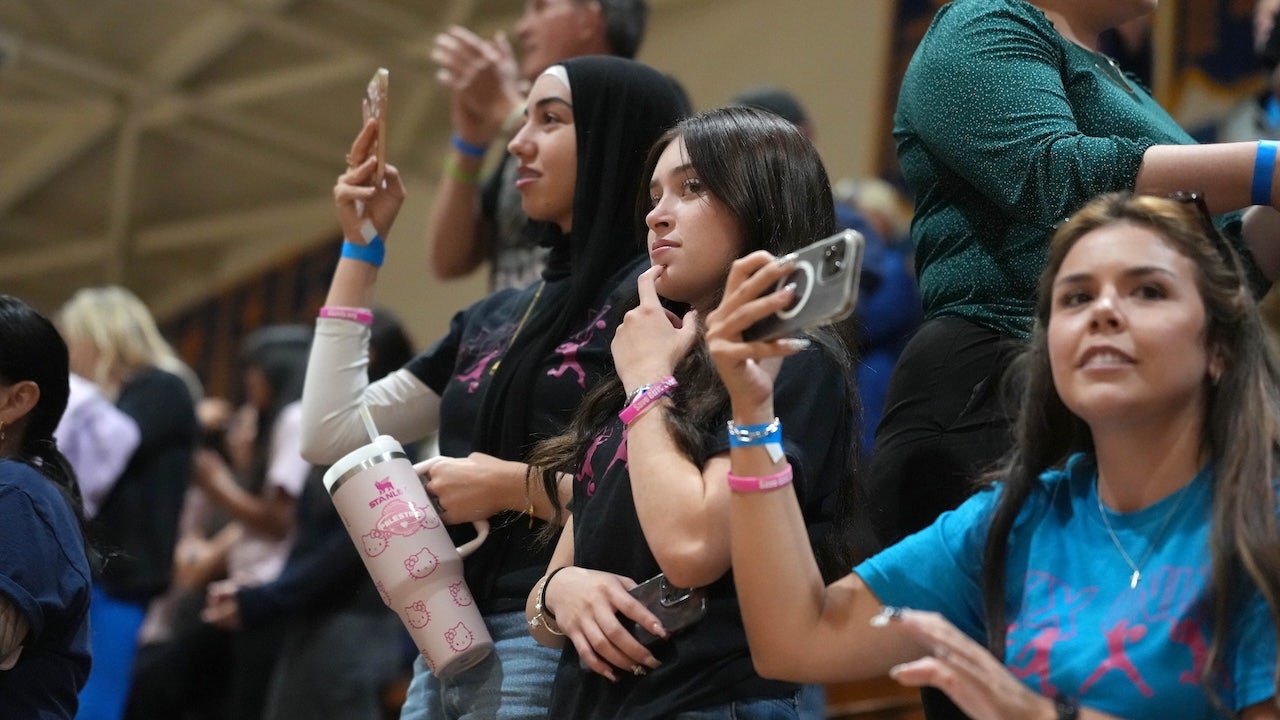Two California high school seniors, Hadeel Hazameh and Alyssa McPherson, have taken a stand against their school district by filing a lawsuit alleging violations of Title IX related to the state’s policies on transgender athletes. The two girls, who were previously members of the Jurupa Valley High School girls’ volleyball team, stepped away from the team in September in protest of a biological male athlete competing on the girls’ team. Their decision to leave the team, however, did not end their involvement or emotional investment in the sport and their school community.
Despite stepping away from active participation, Hazameh and McPherson still wanted to support their teammates during the postseason. When the team qualified for its first state playoff game of the season, the two seniors hoped to sit on the bench with their former teammates. However, they alleged that their volleyball coach, Liana Manu, refused to allow them to do so. The girls had previously been allowed to sit with the team during senior night earlier in the month, but after that event, the coach informed them that future requests to sit on the bench would require prior approval. When they sought permission for the playoff game, their requests went unanswered or were denied, forcing them to watch the game from the stands instead.
At the playoff game, Hazameh and McPherson purchased spectator tickets and joined a group of protesters advocating for the preservation of girls’ sports. Their presence and the controversy surrounding their situation attracted attention on social media, particularly on the platform X, where videos of the two girls went viral. Some clips showed older women in the bleachers making hostile hand gestures directed at Hazameh and McPherson, while others captured women shouting loudly behind them, allegedly trying to intimidate or silence them as they recorded the match. Despite the tension, the game concluded with Jurupa Valley’s season ending in a straight-sets loss to Valencia.
The end of the season brought a complex mix of emotions for Hazameh and McPherson. McPherson expressed relief that the competitive season was over, stating that she did not want anyone to be disadvantaged or hurt by what she described as an unfair advantage. Hazameh echoed this sentiment, acknowledging the hard work of her teammates and the opposing team and expressing gladness that the competition had concluded. However, the experience had taken a significant emotional toll on both girls over the previous months.
Reflecting on her senior year, Hazameh shared a poignant moment when she revisited an old text message from a friend who had graduated the year before. The friend had hoped for an amazing senior year for Hazameh, but the reality had been far from that. Hazameh broke down in tears, describing her senior year as “horrible” and marked by disappointment and hardship. Both girls recounted enduring hurtful messages on social media and receiving hostile looks in the school hallways. They even alleged that the school principal contributed to the hostile environment by telling the volleyball team they did not have to show sportsmanship, such as giving high fives, to Hazameh and McPherson.
Despite these challenges, Hazameh and McPherson remain resolute in their belief that they are “doing the right thing” by standing up against policies they see as unfair. They emphasize that their fight is not against any individual but rather against what they perceive as violations of fairness and equity in girls’ sports. Their commitment to sports has not waned; both plan to rejoin the girls’ track team in the upcoming spring season, even though the same transgender athlete will be competing alongside them. This athlete has a history of winning state championships in girls’ events, including the triple jump and high jump, adding another layer of complexity to the competition.
Throughout their high school careers, Hazameh has competed against the transgender athlete in at least seven track and field events, highlighting the ongoing nature of the issue beyond just volleyball. The upcoming season will mark their senior year, during which they expect to compete alongside the transgender athlete while their lawsuit against the school district proceeds. The legal action underscores the broader national debate over transgender athletes’ participation in women’s sports and the implications for Title IX protections, which aim to prevent sex-based discrimination in educational programs and activities, including athletics.
The Jurupa Unified School District and Jurupa Valley High School girls’ volleyball booster club have been contacted for comment, but no official statements have been made public as of now. Meanwhile, Hazameh and

